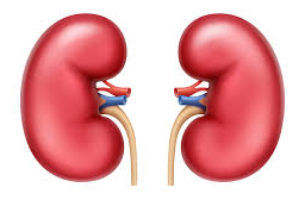10 top tips for first year medical students It can be very daunting being a first year medical student. Here are 10 top tips that may help you. Study techniques 1. Develop new revision styles The revision styles that worked for A-levels might not be the best for your medical school. Most people organise their […]
Read MoreCan you use the NHS if you’re not a UK resident? Yes/no. We will now explain UK residency status and NHS entitlement The NHS works on a residency based system where anyone who has ‘ordinary residence’ is eligible for free healthcare. There are certain criteria you have to meet to be considered ‘ordinarily resident’ which […]
Read MoreWhat is the least busy time in A&E? (6-7am) The quietest time at A&E is 6-7am Monday is the busiest day for A&E visits – avoid that if you can. The quietest time to visit A&E is 6-7am , particularly a Sunday morning. So that is the best time to go. But. If the problem […]
Read MoreStructure of a typical hospital In this article we will describe what is a typical hospital structure. People often ask ‘who runs hospitals?’ The short answer is .. we do. Doctors, nurses and managers run NHS hospitals. They usually work within a three-tier structure: 1. Board Chairperson and Non-Executive Directors, and Executive Directors (‘Executives’). There is usually a core […]
Read MoreWhat is AKI (acute kidney injury)? AKI is a rapid reduction in kidney function – resulting in failure to: Remove water and electrolytes (minerals such as potassium), and, Remove waste (such as urea and creatinine) from the body. ‘Rapid’ means AKI occurs over hours or days. It is a serious illness, and usually requires admission […]
Read MoreWhat causes AKI (acute kidney injury)? 9 key causes of AKI The ‘VOID-RIGHT’ mnemonic is useful: V – vasculitis (e.g. lupus (SLE) nephritis; all rare) O – obstruction I – infection (sepsis) D – dehydration R – renal artery stenosis (with bilateral thrombosis) I – interstitial disease (acute tubular necrosis (ATN); drugs (e.g. antibiotics, NSAIS, […]
Read More10 AKI (acute kidney injury) facts AKI used to be called ‘Acute Renal Failure (or ARF)’. AKI is a simpler phrase in some ways; but there is no real injury, in a trauma sense. We will now go through 10 in depth facts about AKI. 5 Key Points Acute Kidney Injury (AKI): a rapid loss […]
Read MoreStrengths and limitations of BMI BMI and body fat Body mass index (BMI) is associated with but is not a direct measure of body fat. Therefore, it is useful in screening for obesity, but is not a diagnostic measure of obesity and does not displace clinical judgement. BMI and risk BMI’s association with health risk […]
Read MoreTreatments for mental health problems Psychological Therapies Cognitive-Behavioural Therapy (CBT): A problem-focused approach to help individuals identify and change negative thought patterns and behaviours Psychodynamic Therapy: Explores the unconscious thoughts, feelings, and experiences that underlie an individual’s mental health concerns Dialectical Behaviour Therapy (DBT): Combines CBT with mindfulness techniques to help individuals manage emotions and […]
Read MoreWhen should I go to GP for mental health? When to Seek Help Persistent feelings of low mood or anxiety: If you’ve been experiencing these emotions for more than two weeks, it’s time to seek support Symptoms of psychosis: Hallucinations – where a person hears, sees and, in some cases, feels, smells or tastes things […]
Read More






